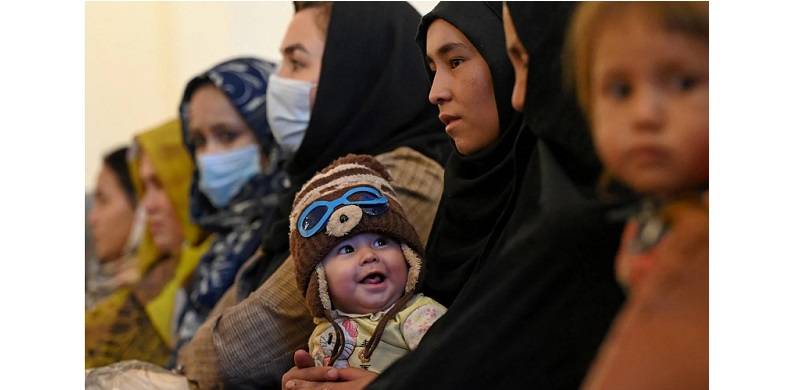
After the Taliban takeover of Kabul, a large number of Afghan nationals are present at the Afghan capital's Hamid Karzai Airport to go abroad. But many more are also waiting at the various border crossings between Afghanistan and Pakistan. These people are trying to enter Pakistan to seek asylum.
There are a large number of Afghans on the Chaman border in Pakistan's Balochistan province, including refugees from the Hazara community, but reports indicate that members of the Hazara community are facing difficulties in entering Pakistan.
A government official stationed in Chaman told The Friday Times on condition of anonymity that there are problems at the border at the moment. This official explained that the border is generally opened for a few hours and then a small number of people cross. He added that many migrants enter Pakistan from areas near the border by paying money, and then move to different parts of Balochistan.
A Chaman government official confirmed that illegal agents and security personnel bring people across the border after receiving payments of money. He further said that those who have money and cross the border with the help of unofficial agents include Hazara and people of other ethnic groups. As for those who do not have influence or money, whether Hazara or people of other ethnicities, they are either in trouble at the border or have returned to their home areas.
Arbaaz Shah, a journalist living in Balochistan, told The Friday Times that the border is closed for 18 hours out of 24, and very few people cross the border into Pakistan in the available six hours. According to Arbaaz Shah, there are many villages on the border from where people manage to reach Pakistan illegally.
According to Shah, so far there have been no confirmed reports that the Hazara community is being systematically stopped at the border, but there are problems for all refugees at the border. He added that there are currently hundreds of refugees camped on the streets of Balochistan, including Hazaras and people from other parts of Afghanistan, but most of them were singers or artists and are likely to suffer under Taliban rule. They have left the country and reached Pakistan primarily due to fear.
The Friday Times tried to obtain the perspective of the district administration of Chaman in this regard, but they did not respond.
There are a large number of Afghans on the Chaman border in Pakistan's Balochistan province, including refugees from the Hazara community, but reports indicate that members of the Hazara community are facing difficulties in entering Pakistan.
A government official stationed in Chaman told The Friday Times on condition of anonymity that there are problems at the border at the moment. This official explained that the border is generally opened for a few hours and then a small number of people cross. He added that many migrants enter Pakistan from areas near the border by paying money, and then move to different parts of Balochistan.
A Chaman government official confirmed that illegal agents and security personnel bring people across the border after receiving payments of money. He further said that those who have money and cross the border with the help of unofficial agents include Hazara and people of other ethnic groups. As for those who do not have influence or money, whether Hazara or people of other ethnicities, they are either in trouble at the border or have returned to their home areas.
Arbaaz Shah, a journalist living in Balochistan, told The Friday Times that the border is closed for 18 hours out of 24, and very few people cross the border into Pakistan in the available six hours. According to Arbaaz Shah, there are many villages on the border from where people manage to reach Pakistan illegally.
According to Shah, so far there have been no confirmed reports that the Hazara community is being systematically stopped at the border, but there are problems for all refugees at the border. He added that there are currently hundreds of refugees camped on the streets of Balochistan, including Hazaras and people from other parts of Afghanistan, but most of them were singers or artists and are likely to suffer under Taliban rule. They have left the country and reached Pakistan primarily due to fear.
The Friday Times tried to obtain the perspective of the district administration of Chaman in this regard, but they did not respond.

